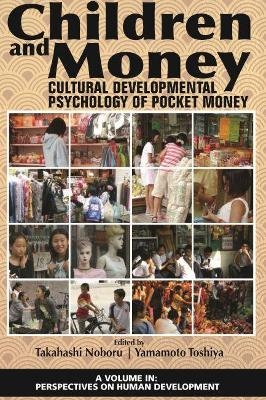
Children and Money
Information Age Publishing (Verlag)
978-1-64113-954-0 (ISBN)
Why Do We Compare Cultures? What Does Money Mean to Children?
Children Living in Consumer Society
Children’s Meanings of Growing up and the Structures of Parent-Child Relationships
Structure of Peer Relationships Mediated by Money
Korean Children’s Lifeworld Revolving Around Money
Chinese Children in Urban Cities and Their Financial Intelligence
Children and Pocket Money in Vietnam
Money for Children in Japan: From an Ecological Perspective of Child Development
Ambivalence of ParentChild Relationships Found in Beliefs Underlying Pocket Money
Birth of Trajectory Equifinality Approach (TEA) and the Pocket Money Project: Effort to Theorize the Flow of Time
When Difference Appears, and How to Overcome the Difference
“The Pocket Money Project” and “the Cultural Psychology of Differences”
Supplementary Chapter: Outline of the Project, Summary of the Results, and a Support Runner’s Suggestions for a New Dialogue
Appendix: Tables
| Erscheinungsdatum | 02.04.2020 |
|---|---|
| Reihe/Serie | Perspectives on Human Development |
| Verlagsort | Greenwich |
| Sprache | englisch |
| Maße | 156 x 234 mm |
| Themenwelt | Geisteswissenschaften ► Psychologie ► Entwicklungspsychologie |
| Sozialwissenschaften ► Ethnologie | |
| Sozialwissenschaften ► Soziologie | |
| ISBN-10 | 1-64113-954-4 / 1641139544 |
| ISBN-13 | 978-1-64113-954-0 / 9781641139540 |
| Zustand | Neuware |
| Haben Sie eine Frage zum Produkt? |
aus dem Bereich


